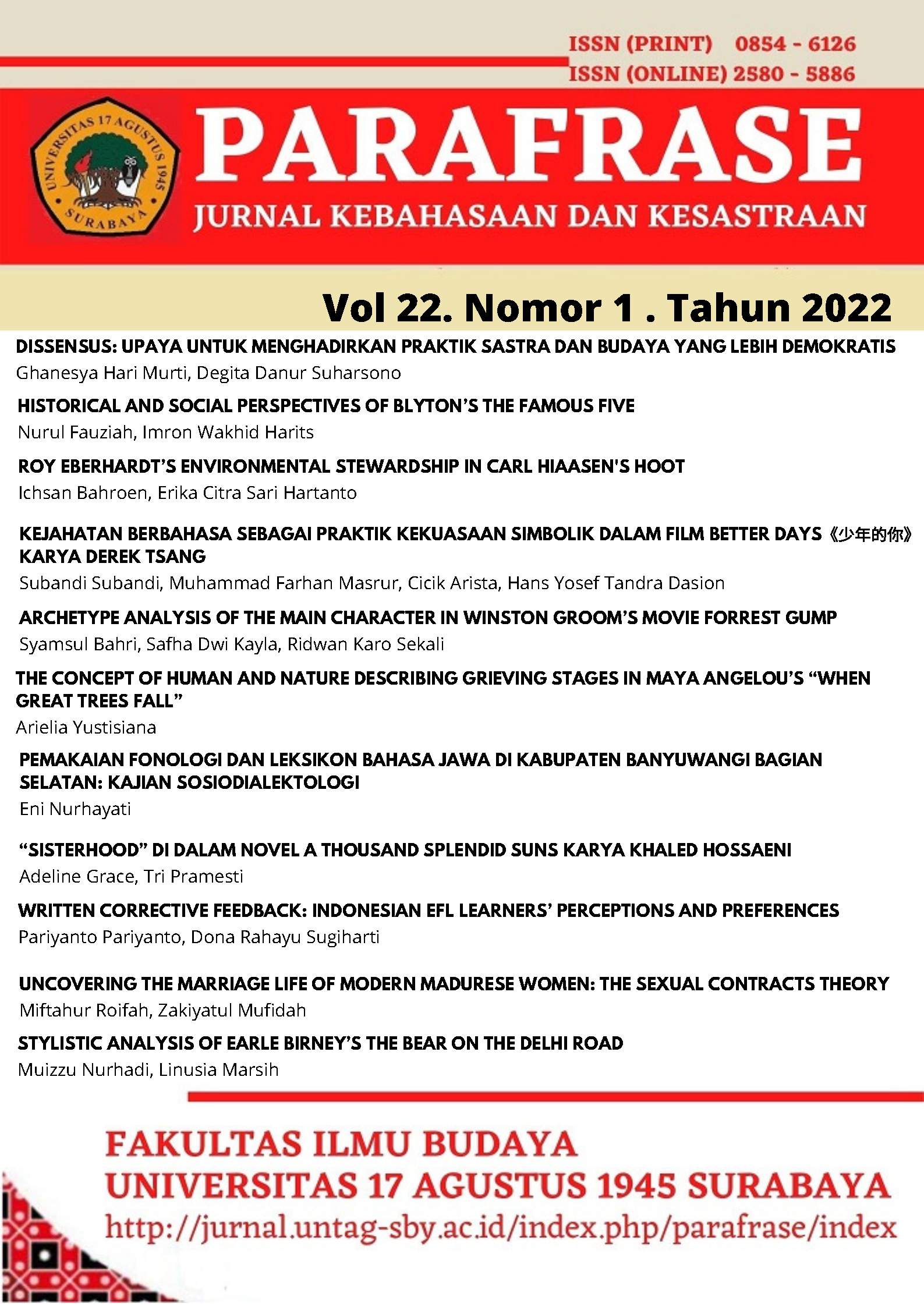WRITTEN CORRECTIVE FEEDBACK
INDONESIAN EFL LEARNERS’ PERCEPTIONS AND PREFERENCES
DOI:
https://doi.org/10.30996/parafrase.v22i1.6528Abstract
This paper reports on an exploratory study that investigated learners’ perceptions and preferences of written corrective feedback (WCF) in Indonesian EFL setting. Quantitative and qualitative data were collected from 32 adult English learners studying academic writing. Employing written questionnaire, the study explored the learners’ perceptions and preferences of WCF. The results indicated that the participants (1) mainly expressed a favorable attitude towards error correction or WCF; (2) preferred to revise errors on punctuation (40%), vocabulary (30%), spelling (15%), grammar (10%), and organization (5%); (3) considered commenting on content, grammar, organization, overall quality of writing equally important; (4) believed that WCF is effective when it is presented by underlining the error and then pointing to the correct source of information, showing the location of the error and indicating the type of error, underlining the error, and then telling the correct form, providing corrections for errors and then providing an explanation regarding the improvements; and (5) shared similar opinions about WCF, regardless of their proficiency level. Overall, the findings confirm the significance of WCF for Indonesian EFL learners learning to write.
Downloads
Downloads
Published
How to Cite
Issue
Section
License
Authors publishing in the Journal will be asked to sign a Copyright Assignment Form. In signing the form, it is assumed that authors have obtained permission to use any copyrighted or previously published material. All authors must read and agree to the conditions outlined in the form, and must sign the form or agree that the corresponding author can sign on their behalf. Articles cannot be published until a signed form has been received.It is a condition of publication that authors assign copyright or license the publication rights in their articles, including abstracts, to email jurnalparafrase@untag-sby.ac.id. . This enables us to ensure full copyright protection and to disseminate the article, and of course the Journal to the widest possible readership in print and electronic formats as appropriate.



















